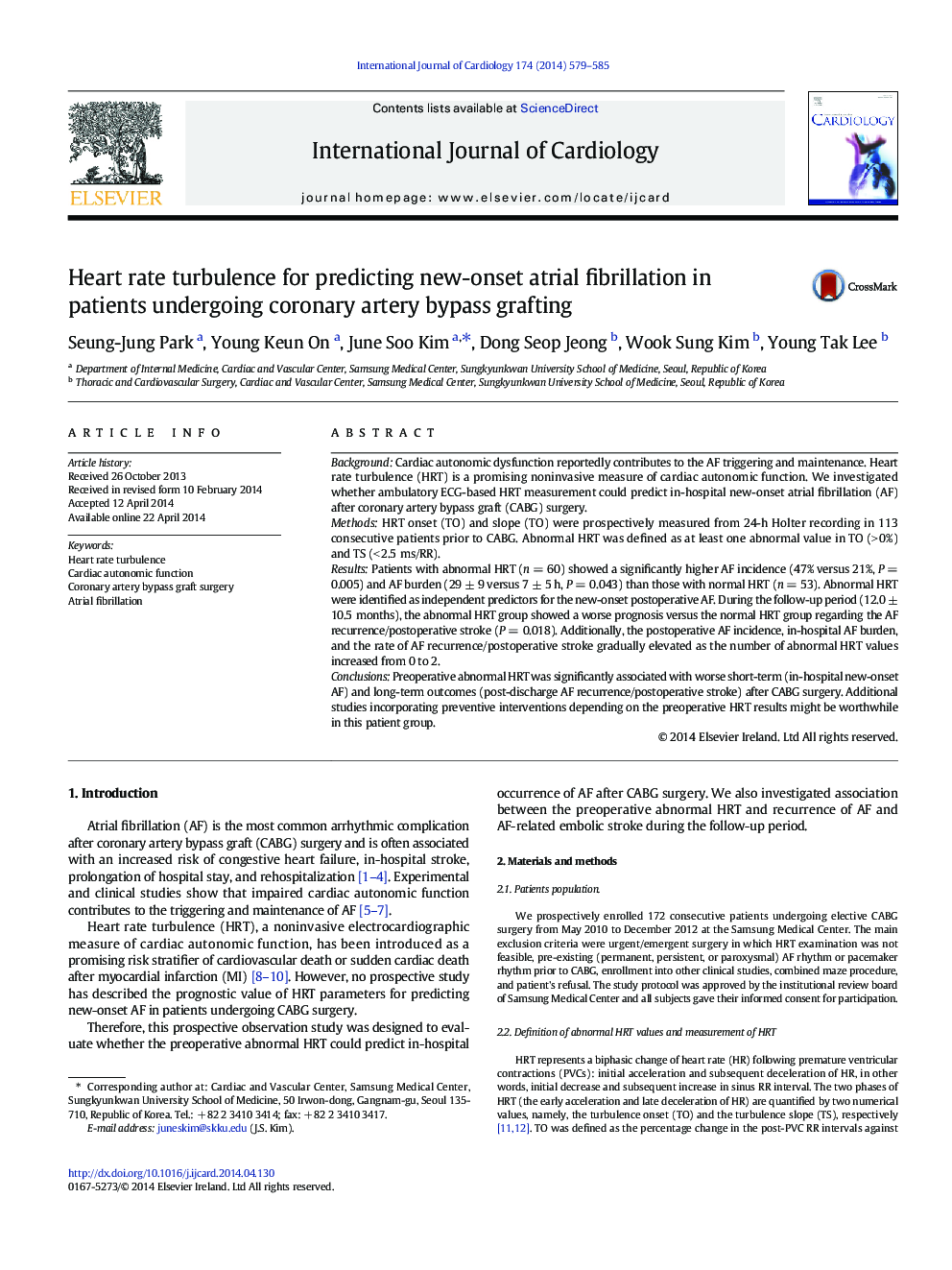| Article ID | Journal | Published Year | Pages | File Type |
|---|---|---|---|---|
| 5971518 | International Journal of Cardiology | 2014 | 7 Pages |
BackgroundCardiac autonomic dysfunction reportedly contributes to the AF triggering and maintenance. Heart rate turbulence (HRT) is a promising noninvasive measure of cardiac autonomic function. We investigated whether ambulatory ECG-based HRT measurement could predict in-hospital new-onset atrial fibrillation (AF) after coronary artery bypass graft (CABG) surgery.MethodsHRT onset (TO) and slope (TO) were prospectively measured from 24-h Holter recording in 113 consecutive patients prior to CABG. Abnormal HRT was defined as at least one abnormal value in TO (> 0%) and TS (< 2.5 ms/RR).ResultsPatients with abnormal HRT (n = 60) showed a significantly higher AF incidence (47% versus 21%, P = 0.005) and AF burden (29 ± 9 versus 7 ± 5 h, P = 0.043) than those with normal HRT (n = 53). Abnormal HRT were identified as independent predictors for the new-onset postoperative AF. During the follow-up period (12.0 ± 10.5 months), the abnormal HRT group showed a worse prognosis versus the normal HRT group regarding the AF recurrence/postoperative stroke (P = 0.018). Additionally, the postoperative AF incidence, in-hospital AF burden, and the rate of AF recurrence/postoperative stroke gradually elevated as the number of abnormal HRT values increased from 0 to 2.ConclusionsPreoperative abnormal HRT was significantly associated with worse short-term (in-hospital new-onset AF) and long-term outcomes (post-discharge AF recurrence/postoperative stroke) after CABG surgery. Additional studies incorporating preventive interventions depending on the preoperative HRT results might be worthwhile in this patient group.
